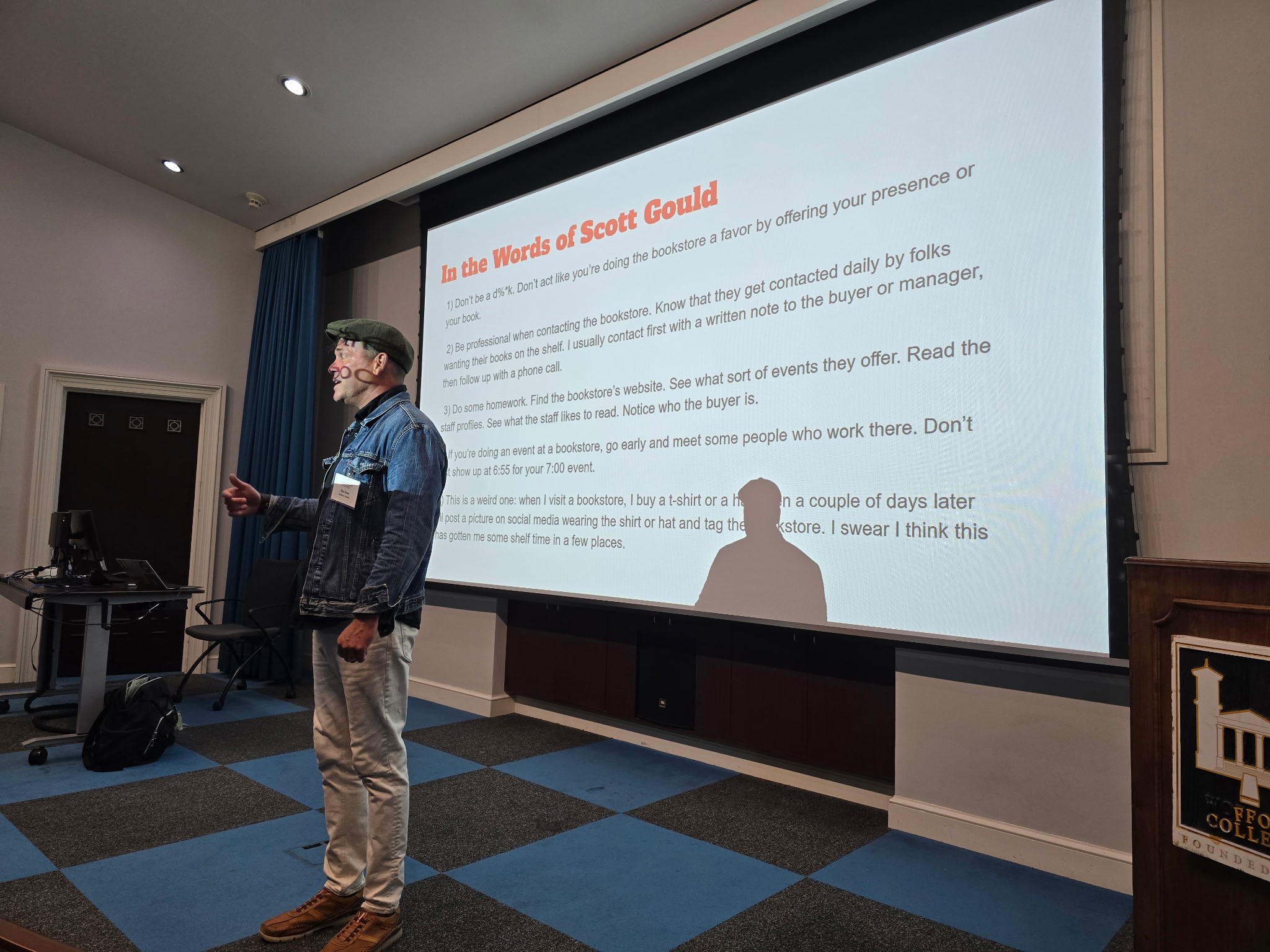From May 28–29, 2025, the literary and scholarly community gathered at Wofford College in Spartanburg, South Carolina, for a milestone event—the first-ever Piedmont Publishing Symposium (PPS). Born of a unique collaboration among four regional publishing powerhouses—Clemson University Press, Hub City Press, University of North Georgia Press, and University of South Carolina Press—this event was designed to bridge gaps across the worlds of academic and trade publishing. With eight dynamic sessions, a distinguished keynote, and an atmosphere brimming with collaboration, the Symposium delivered far more than knowledge-sharing: it created a sense of belonging.
Building a Community of Practice
One of the most striking aspects of the Piedmont Publishing Symposium was the way it cultivated genuine dialogue across professional and disciplinary lines. Students, authors, editors, designers, scholars, and marketers each found space to contribute, ask questions, and share in the excitement of an evolving publishing landscape. The symposium was intentionally structured to engage a wide range of participants, from industry veterans to newcomers exploring a career in publishing.
As Dr. BJ Robinson, Director of the University of North Georgia Press, reflected:
“The range of panel topics at the Symposium—from AI to production to self-publishing—was matched by the diverse mix of attendees, including students, professors, authors, and publishers. Regardless of our individual specialties or professional roles, we all found a place within this larger, connected community.”
This spirit of inclusion permeated the event, transforming each session into not just a learning opportunity, but a forum for new connections and fresh perspectives.
Day One: Publishing Demystified
The Symposium kicked off bright and early on May 28 with registration, coffee, and an air of anticipation. After a warm welcome from event organizers, the first round of sessions offered attendees the chance to choose between two concurrent tracks:
- “Writing an Academic Book Proposal,” led by Andrew Dorkin and Ehren Foley, offered practical strategies for scholars aiming to transform research into a compelling manuscript pitch.
- “Open Access and Scholarly Publishing,” featuring Dr. Robinson, Corinne Guimont, and Gabriel Hankins, tackled the complexities of OA publishing models and their implications for accessibility, funding, and ethical scholarship.
Following a short break, the focus shifted toward book production with insights from publishing professionals across four presses. Moderated by Ash Smith of the South Carolina Writers Association (SCWA), the session demystified production workflows and clarified author roles, proving especially useful for debut writers and student attendees.
Ethics, AI, and Innovation
The highlight of the afternoon came with a keynote address from Dr. J. Elliott Casal of the University of Memphis: “Generative AI, Academic Publishing, and Conversations on Ethics.” His presentation balanced caution with curiosity, probing how new AI tools are reshaping academic workflows and forcing critical conversations about authorship, intellectual property, and editorial integrity.
Attendees praised the talk for its balance of scholarly rigor and accessibility. The keynote set the tone for many follow-up discussions in hallways, breakout groups, and evening socials.
Later that afternoon, two additional sessions gave participants new avenues for exploration:
- A lively author conversation between Rachel Hanson (The End of Tennessee) and Dan Leach (Junah at the End of the World) offered a behind-the-scenes look at craft, editing, and the emotional life of a writer.
- “How to Get into Publishing as a Career,” hosted by Katoya Fleming and Drew Griffin, provided vital guidance for students and early-career professionals.
The day concluded with a celebratory reception at the Hub City Bookshop, where Symposium attendees browsed the shelves, exchanged business cards, and enjoyed lively conversations that flowed into the night.
Day Two: Practical Tools for a Publishing Future
The second day began with practical sessions for authors and professionals alike, focused on pitching, publishing, marketing, and bookselling in today’s fast-paced environment.
- “Finding the Right Publisher for Your Project” brought together insights from UNG Press, Hub City, Clemson UP, and USC Press—offering actionable advice for authors navigating the submission process.
- In a parallel session, “Understanding Bookselling in 2025,” Lara Hrabota of W. W. Norton, blogger Kala Saxon, and Jim Scott of Judson Books explored shifts in retail trends, online discoverability, and community engagement.
The Symposium wrapped with a robust panel on book marketing and publicity, led by Cathy Esposito and Alyson Sinclair. Attendees came away with a clearer understanding of campaign timelines, audience segmentation, and the collaborative nature of modern book promotion.
Takeaways and Momentum
Throughout the Symposium, a few themes repeatedly emerged: collaboration over competition, transparency in process, and adaptability in a changing field. While much attention was given to the tools and trends transforming publishing—such as AI, open access, and online discoverability—the real takeaway was human-centered: this field thrives on relationships, mentorship, and shared learning.
For many, the PPS offered a rare convergence—a space where Southern writers met national publishers, where academic editors shared lunch with debut authors, and where seasoned professionals listened just as much as they spoke.
Looking Ahead: A Bright Future for Regional Publishing Events
Given the success of the inaugural Piedmont Publishing Symposium, attendees and organizers alike are hopeful it will become a recurring event. The demand for regional spaces that foster cross-sector dialogue is strong—and growing. The Piedmont region, with its rich literary heritage and vibrant university press community, is the ideal backdrop for such collaboration.
Whether you’re an author preparing your first manuscript, a graduate student considering a career in publishing, or a veteran editor seeking fresh insights, the PPS offers a uniquely welcoming and enriching environment.
Stay tuned for future announcements—and consider joining the community at the next Symposium.

